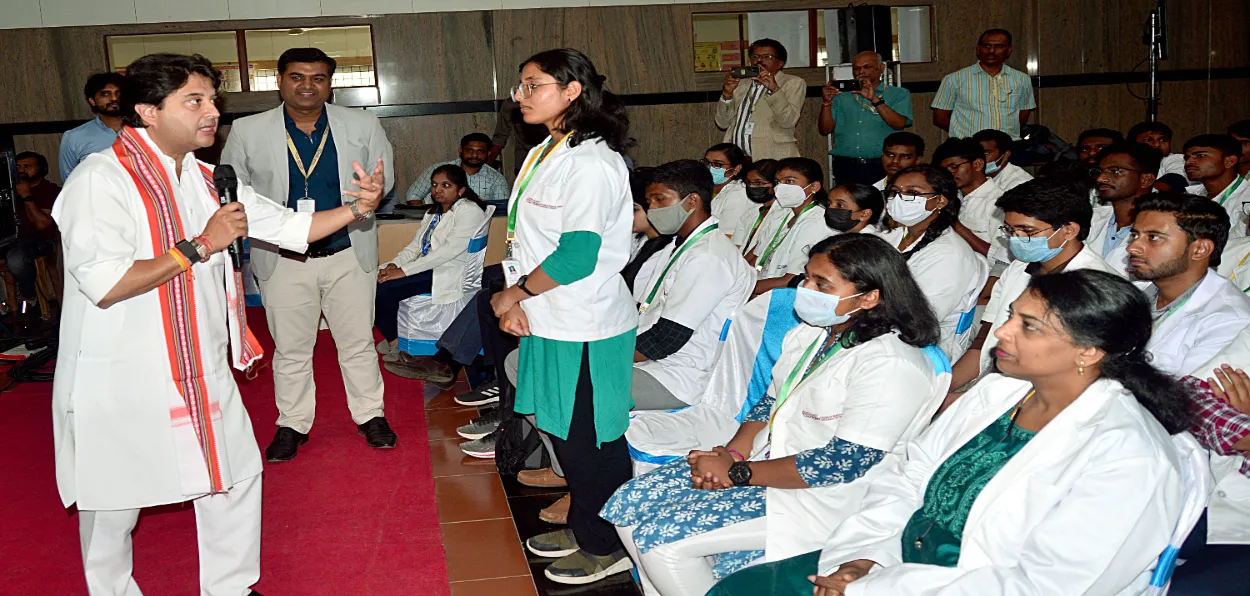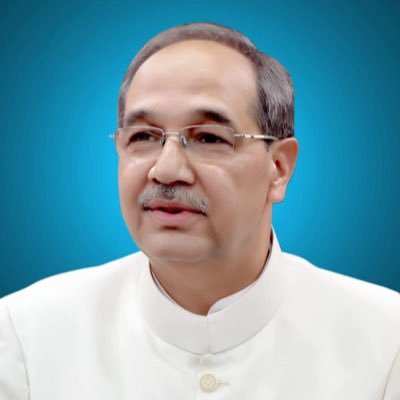
 Tariq Mansoor
Tariq Mansoor
The role of education in the development of any society cannot be overemphasised. For meaningful participation in society’s development, education is an essential prerequisite. Therefore, a wise democracy works to motivate everyone to participate in education. The quality of governance in such a democracy is embodied by its for education and culture.
Under the leadership of Prime Minister Narendra Modi and Education Minister Dharmendra Pradhan, education has become a key component in ushering holistic development in India. The National Education Policy (NEP) 2020 aims to engender education as a vital component of holistic development in India, with access and equity the leitmotif of the policy.
To this end, the NEP 2020 introduced many progressive provisions to make education in India "Our Education" and "Education for the People". Notably, the policy calls for steps to reduce the dominance of English and prioritize research in native Indian languages.
Even before the implementation of NEP 2020, efforts were underway to promote knowledge creation in regional languages. This emphasis on mother tongue-based knowledge creation will democratize the process, ensuring broader participation of the general masses in democratic engagements. By envisioning education as both a personal right and a collective societal responsibility, these initiatives strive to drive intellectual development and inclusion at all levels.
In a country like India, financial constraints are the most severe hurdle to accessing education. Many promising and capable students are deprived of quality education due to economic hardship. Poverty and financial instability are a norm, not a rarity, contributing to education ostracization of youth. Recognizing this, the government has been striving to simplify and facilitate the process of securing educational loans for students, with robust support from the banking sector.
In this backdrop, the recent introduction of the PM Vidyalaxmi Scheme is a landmark. This unique education loan scheme aims to support meritorious students seeking admission to India’s top-ranking educational institutions. Under this scheme, potential deserving youth will be given easy and quick education loan without any guarantee or collateral through fully digital application processes for studying in 860 highly ranked educational institutions of the country. More than 22 lakh talented students across the country stand to benefit from this initiative annually, with the government stepping in as the guarantor. This loan will be made available to the students at a nominal interest rate.
This scheme is reflective of a vision of guaranteeing education as a democratic right. In essence, the government emerges as the guarantor to provide financial resources and support for education in premier institutions to such intellectually talented students and youth.
By eliminating the need for a guarantor to take a loan and by providing the facility of taking a loan digitally from home, students will be able to get an education from the best institutions on their own. As a result, the number of students taking education loans today, which is currently around three lakhs, is expected to increase significantly.
In this context, a loan should not be seen as just a loan but as a means of empowerment for students and youth to access education in elite institutions and realise their potential.
State support for education has always had an ameliorating effect on social welfare and development. Across northern India and other regions, various communities have utilized loans to bolster their growth potential. Without such government-supported loans, many communities would remain distanced from the doors of democracy.
In this context, we are primarily referring to middle, backward, and Dalit communities in Indian society who have accelerated their development with the help of bank loans after independence. Since 2014, after PM Narendra Modi came to power, such economic cooperation in the form of social welfare programs has played an important role in the development and mobility of groups, communities, and people. Intensive research on this aspect of planning is yet to be done.
Baba Saheb Ambedkar considered education a powerful tool for the liberation of Dalits and backward classes. It is the responsibility of any government operating within the framework of Indian democracy to introduce policies that integrate economically disadvantaged students and youth into the educational system. This scheme is a testament to this commitment and a tribute to the merit of the youth of our society.
This scheme enables talented students to fulfil their aspirations of pursuing education in the nation’s best institutions. This will contribute towards human resource development and social empowerment in our society, which will become the basis of a developed India.
Prof. Tariq Mansoor is a nominated member of the Legislative Council, Uttar Pradesh, and former Vice-Chancellor of Aligarh Muslim University.
